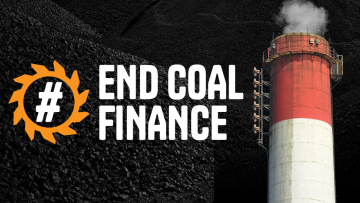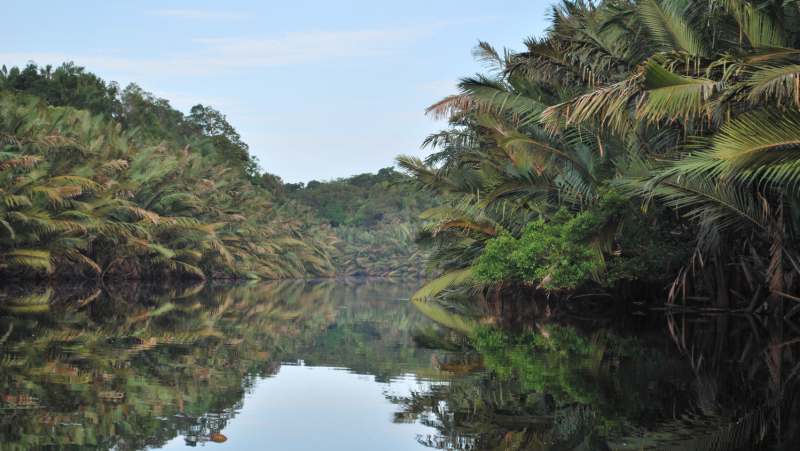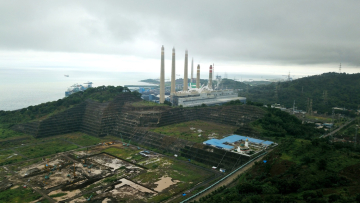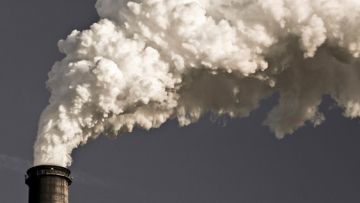
Project – Active
This profile is actively maintainedBankTrack
Camilla Perotti, Banks and Coal Campaigner

Project – Active
This profile is actively maintainedBankTrack
Camilla Perotti, Banks and Coal Campaigner
Why this profile?
Jambi-2 is a coal-fired power plant being proposed for construction in Indonesia’s Sumatran wilderness, in a region already plagued by this fossil fuel’s impacts. If built, it will compound the severe health and environmental harms local communities are already experiencing. Jambi-2 will greatly increase Indonesia's coal-related greenhouse gas emissions and prolong the country’s coal power dependency.
What must happen
Financial close has not yet been reached on Jambi-2, so banks should immediately rule out finance and facilitation for the project and its developing companies China’s Huadian Corporation and Indonesia’s state utility PT PLN.
| Sectors | Coal Electric Power Generation , Coal Mining |
| Location |
|
| Status |
Planning
Design
Agreement
Construction
Operation
Closure
Decommission
|
The Jambi-2 coal-fired power plant was proposed by Indonesia’s state utility, Perusahaan Listrik Negara (PLN), for construction in Jambi province on the island of Sumatra, Indonesia. The plant would consist of two units of 350 megawatts (MW) generation capacity each. The Jambi plant would source its coal from a mine directly adjacent to the coal-fired power plant.
As of August 2023, the plant was reported as being “in the cancellation process” at PLN and governmental levels. However, according to Inclusive Development International (IDI)’s report “Blowing Smoke”, PLN stated by email to researchers in September 2023 that China Huadian Corporation was still developing the project and that the project was moving toward financial close. This is in spite of Huadian announcing in October 2022 that it would withdraw from the project and Chinese President Xi Jinping’s announcement at the UN General Assembly in 2021 that China would no longer be developing overseas coal projects. Huadian did not respond to IDI’s requests for a comment on their involvement in the project.
In November 2024, Indonesian President Prabowo Subianto announced the country’s intention to retire all fossil fuel power plants within 15 years. This intention would clash with the development of any new coal-fired power plant, as, on average, these typically remain operational for 40-50 years. As one of the projects developers, PLN, is a state-owned utility company, the company should adhere to the government’s plans by cancelling this project.
Considering these factors and without any clear official updates on the project for the past three years, the project can be presumed shelved, although no official cancellation statement has yet been made.
Impact on human rights and communities
Impacts on local communities The Environmental Justice Atlas estimates that 3,000 people may be affected by the project. Potential impacts to those living in and around the construction zone include loss of livelihood, traditional knowledge and land. Small agricultural villages like Lubuk Napal and Pemusiran, immediately next to and nearby the proposed Jambi-2 site respectively, are already heavily affected by the existing coal mining industry. Thousands of trucks bringing coal to other plants hit and kill dozens of pedestrians each year on the two-lane highway in the area and cause gridlock which prevents villagers from accessing essential services (including causing deaths of some locals waiting to get to hospital). Water resources, previously potable and used for bathing, have been tarnished. The use of the extracted coal by Jambi-2 to create power will accentuate and lock in these impacts.
Loss of Indigenous peoples’ land and knowledge Small-scale crop cultivation and inter-community cooperation in land management are some examples of traditional land management practised by Indigenous populations in Jambi which have been disrupted by coal developments. The displacement of Indigenous peoples in Sumatra entailed in the proposed Jambi-2 coal-mine-and-power project would further jeopardise their land stewardship and practices.
Impact on climate
Locking-in coal Jambi province has coal reserves which are being mined intensively. These reserves are vast, according to Jambi Province’s head of Mineral Resources: if mined at current rates (between 13 and 19 million metric tons per year), the reserves of 1.9 billion metric tons are projected to be depleted in 100 years. As a mine-mouth project, the Jambi-2 coal power station would burn these resources at the source from which they are extracted. Cancelling coal-fired power projects in rapidly growing economies like Indonesia is identified by some experts as the most urgent priority in stopping climate change. WALHI Jambi, the province’s branch of Indonesia’s largest environmental NGO, has identified significant opportunities for renewable energy alternatives to supply the province with energy. These include solar, wind, geothermal and small-scale hydroelectric projects. Building new coal power, rather than renewables, further perpetuates Indonesia’s coal dependence.
Impact on nature and environment
Destruction of critical ecosystems A World Bank blog points out that Jambi province in central Sumatra is “home to forests and peatlands that regulate water flows, store carbon, support biodiversity, and are lifelines for traditional communities such as the Talang Mamak, Orang Rimba, and Melayu peoples” but that “these rich landscapes are fast disappearing”, with emissions from land use change accounting for over 85% of the province’s emissions. Jambi-2’s development will undoubtedly entail further significant land-clearing, both to build the actual plant as well as accompanying infrastructure like transmission lines and roads.
Threatening endangered species Endangered species living in Jambi, like the Sumatran elephant, are increasingly threatened by the creeping loss of nature from industrialisation and land-use change. Industries like palm oil agribusiness and coal mining and power, like the proposed Jambi-2 project, are triggering this effect.
No detailed information is publicly available on the specific financing arrangements for the plant. IDI’s “Blowing Smoke” report states that the International Finance Corporation (IFC) is exposed to the Jambi-2 project via equity investments in Postal Savings Bank of China (PSBC). PSBC is a major lender to China Huadian Group, the developer of Jambi-2.
In 2024, Bank of China signed a comprehensive strategic cooperation agreement and a special cooperation agreement on green development with China Huadian Group, to further the collaboration with the Group, particularly on energy project financing, green finance, and technology finance. In September 2024, Bank Mandiri established a strategic partnership with China Huadian’s subsidiary PT Huadian Bukit Asam Power (HBAP). The partnership entails an investment credit financing of USD 1.27 billion to refinance and strengthen HBAP's operations as an electricity provider, and, specifically to support the operation of the Sumsel-8 coal-fired power plant in South Sumatra and the development of other power projects at a national level.
Huadian’s power purchase agreement with PLN is a build-own-operate-transfer scheme (“BOOT”). Although details about this type of coal power plant development are usually in confidential contracts, it likely means that, if the project moves forward, Huadian will make equity investments in the project and seek financing from banks and other financial institutions.
Recent research by BankTrack, IDI, and Recourse, has identified ten commercial banks that, in light of their past financial relationships with the developing companies or past financing for similar projects in the area, are likely to be approached for finance of this project. These are Bank of China, DBS, Hana Financial Group, Maybank, Mizuho Financial Group, OCBC Bank, and Indonesian banks Bank DKI, Bank Mandiri, Bank Negara Indonesia, and Bank Rakyat Indonesia.
This research also showcased how Jambi-2 is only one project in a vast list of proposed and announced coal power projects in South- and Southeast Asia currently seeking finance.
In 2018, a subsidiary of China Huadian Group signed a power purchase agreement with PLN to build the Jambi-2 plant and supply electricity locally. As described above, PLN has maintained in October 2023 that Huadian is still developing the project and that the power purchase agreement is still in effect, while Huadian has provided no update on the project status.


